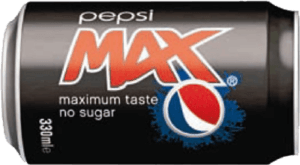Disposable outcomes
In a recent quiet news week, a report was launched claiming that between 30% and 50% of all the world’s food goes to waste. Incongruously, it emanated from the UK’s Institution of Mechanical Engineers.
Whether intentionally or not, what that august body engineered on this occasion was a renewed attack on an already softened-up food industry.
The story was gleefully seized upon by media across the globe, as titles from The Guardian to the Los Angeles Times headlined the higher 50% figure, uncritically regurgitated the report’s key findings, and set about apportioning blame.
Food manufacturers and retailers were taken to task for practices that encourage consumer waste, such as two-for-one offers, ‘best-before’ labelling and big pack sizes.
Marketers of food brands will want to keep on the right side of this latest controversy, but their options are severely limited, since virtually all practical actions to reduce waste would run into some other problem.
Encouraging people to finish every last drop of mayonnaise, yoghurt or juice might mean less would go in the bin, but more would go into people’s stomachs, thereby adding to accusations of fostering obesity.
Dropping ‘best-before’ dates, which are blamed for triggering the disposal of still-edible food, would prompt accusations of hiding information. Withdrawing two-for-one offers would be seen as hitting the poorest hardest.
Meanwhile, reducing pack sizes or somehow contriving other ways to decrease the total volume of food products sold would run smack into the law of unintended consequences, as poor farming communities in the developing world suddenly found their export markets slipping away.
Well, here’s another tack. The food industry may be on the back foot, but does it really have to squirm and reassure every time a new, seemingly damning report hits the press? Perhaps it is time that two hitherto ‘untouchable’ constituencies also came in for a bit of flak.
The first is the research industry itself, which colludes in hyping dubious data to make those punchy headlines. As a general rule, marketers and journalists give anything labelled ‘research’ too much uncritical credence.
The IMechE report is based on no original fieldwork, but extrapolates from previous studies, taking considerable licence with the facts as it does so. Its claim that ‘30% of the UK vegetable crop is never harvested’, due to industry insistence on comely produce, is based on a single 2008 report that related only to potatoes.
The other ‘untouchable’ is the consumer. If they buy too much, throw too much out or stuff themselves so full that the outcome is obesity, diabetes or worse, it is portrayed as helplessness in the face of food-industry temptation.
People are not so biddable, as any experienced marketer knows. In the midst of plenty, they choose plenty; given the ease of chucking leftovers out, rather than turning them into stew as our grandmothers did, they take the former option.
Responsible food brands will take this latest issue seriously and seek to reduce their ‘garbage footprint’, but until researchers provide more honest data, and consumers make more thoughtful choices, they are probably wasting their time.
Following an OECD report, newspapers earlier this month headlined a ‘spiralling’ (Daily Mail) child obesity crisis, with Health Secretary Jeremy Hunt warning supermarkets and food manufacturers to ‘get their house in order’. Unless they took steps to curb sugary and fatty foods aimed at children, he added, hard-hitting legislation would be introduced. However, those who took the time to go through the report would see it states that ‘the [childhood obesity] epidemic has effectively come to a halt’.

PepsiCo accused of using ‘foetal cells’
The tinned tuna industry has long courted criticism due to the practice of using dolphins to help round up tuna. The nets sometimes trap nearby dolphin, but estimates of annual death tolls vary from 2,500 to 400,000 depending on which – usually anecdotal – source you go with. The industry has responded by creating a ‘dolphin safe’ label, but even this has come under fire, for disregarding other marine life.
Before Britain’s horse-burger scandal came US outrage at PepsiCo‘s reported use of aborted human foetal cells as flavour enhancers. Despite the controversy, the SEC found that the cells were used only in testing and development, and categorised the practice as ‘ordinary business operations’.
